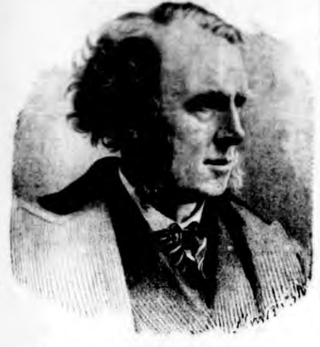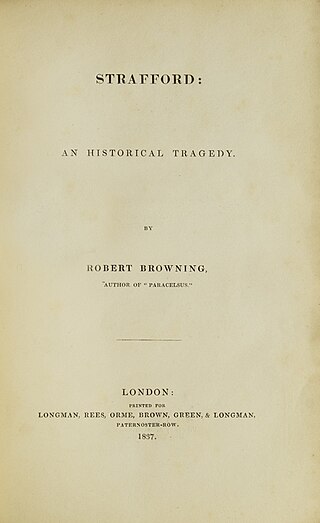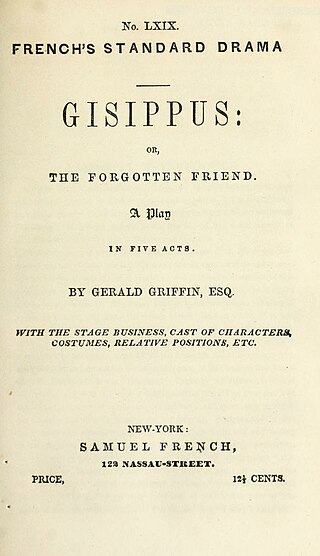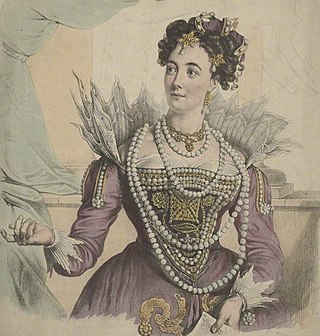Related Research Articles

The Tremont Theatre (1827–1843) on 88 Tremont Street was a playhouse in Boston. A group of wealthy Boston residents financed the building's construction. Architect Isaiah Rogers designed the original Theatre structure in 1827 in the Greek Revival style. The playhouse opened on 24 September 1827.

Susan Webb Cushman was a Boston, Massachusetts-born American actress, the younger sister of established actress Charlotte Cushman.

George Vandenhoff was an English actor and elocutionist who performed in Britain and the United States.
Kensington Gardens is a 1719 comedy play by the Irish actor John Leigh. It is also known as Kensington Gardens, or, The Pretenders. It follows the attempts of several suitors to woo a wealthy rich widow, and the serious of complications that ensue.
The Coquet, or the English Chevalier is a 1718 comedy play by the Irish writer Charles Molloy.
The Traitor is a tragedy published anonymously in 1718 and commonly attributed to the British writer and actor Christopher Bullock. It is a revised version of the 1631 play of the same title by James Shirley. It was Bullock's only effort to write tragedy, as his other works were all farces.
The Fashionable Lady is a 1730 comedy play by James Ralph.
Philip of Macedon is a 1727 tragedy by the British writer David Lewis. It is set during the reign of Philip of Macedon.

Pasquin is a 1736 comedy play by Henry Fielding. It is a satire on both politics and the theatre, with a play within a play plot about a group of actors attempting to put on a production about a local election. It takes its name from Pasquin, a historic statue in Rome.

The Suspicious Husband is a 1747 comedy play by the British writer Benjamin Hoadly.

John Michael Vandenhoff was an English actor. He performed in London theatres, and also in Edinburgh and Liverpool; he played leading roles including those in Shakespearean tragedy.

Lucius or Lucius, the First Christian King of Britain is a 1717 tragedy by the British writer Delarivier Manley. It is based on the life of Lucius of Britain, the second century ruler of Britain traditionally considered to have introduced Christianity to Britain. It was Manley's final play to be staged.

The Cobbler of Preston is a 1716 comedy play by Christopher Bullock, although a separate play of the same title was written by Charles Johnson the same year. A one-act afterpiece is the origin of the phrase "Tis impossible to be sure of anything but Death and Taxes". In the preface to the published version Bullock suggested that he had begun writing the play just four days before its premiere. It takes inspiration from The Taming of the Shrew by William Shakespeare and is set in Preston, Lancashire. The town had recently been scene of fighting during the 1715 Jacobite Rebellion at the Battle of Preston. Bullock's play does not overtly reference the rebellion, but has undertones supportive of the Hanoverian Dynasty.

Strafford is an 1837 tragedy by the British writer Robert Browning. It portrays the downfall and execution of Lord Strafford, the advisor to Charles I shortly before the English Civil War.

Gisippus is an 1842 tragedy by the Irish writer Gerald Griffin. It premiered at the Theatre Royal, Drury Lane in London on 23 February 1842. It was staged posthumously as Griffin had died from typhus in 1840, and was likely written before 1838. The original cast included William Macready as Gisippus, James Robertson Anderson as Titus Quintus Fulvius, Edward Elton as Pheax, George Bennett as Lycias, Charles Selby as Macro and Helena Faucit as Sophronia. Its opening resembles William Shakespeare's Julius Caesar, but with the setting switched from Rome to Athens. The play was a popular success. It went on to appear in New York at the Park Theatre in 1847 and Broadway Theatre in 1848.

Glencoe; or, the Fate of the Macdonalds is a historical tragedy by the British writer Thomas Talfourd. It premiered at the Theatre Royal, Haymarket on 23 June 1840. The cast included William Macready as Halbert MacDonald, Helena Faucit as Helen Campbell, Henry Howe as Henry MacDonald, Benjamin Webster as MacIan, Samuel Phelps as Captain Robert Campbell, Priscilla Horton as Alaster MacDonald, Walter Lacy as Lindsay and Mary Warner as Lady MacDonald. Talfourd dedicated the published version to the literary critic Lord Jeffrey. It was revived at the Surrey Theatre in October 1849.

Master Clarke is an 1840 historical play by the British writer Thomas James Serle. It premiered at the Theatre Royal, Haymarket on 26 September 1840. It revolves around the life of Richard Cromwell, deposed Lord Protector of England, during the seventeenth century.

The Duchess de la Vallière is an 1837 historical play by the British writer Edward Bulwer-Lytton. It is based on the life of Louise de La Vallière, a French aristocrat and mistress of Louis XIV in the seventeenth century. It premiered at the Theatre Royal, Covent Garden on 4 January 1837. The original cast included Helena Faucit as Louise de la Vallière, William Macready as the Marquis Alphonso de Bragelone, John Vandenhoff as Louis XIV, William Farren as the Duke of Lauzun, John Langford Pritchard as the Count de Grammont, William Harries Tilbury as Bertrand and Sarah West as Madame la Vallière.

Ion, a Tragedy is a tragedy by the British writer Thomas Talfourd. Published in 1835, it was first performed at the Theatre Royal, Covent Garden in London on 26 May 1836. The Covent Garden cast included William Macready as Ion, Ellen Tree as Clemanthe, John Vandenhoff as Adrastus, King of Argos, Charles Thompson as Medon, George John Bennett as Phocion, Henry John Wallack as Ctesiphon, John Langford Pritchard as Agenor, Harriette Deborah Lacy as Abra.

Kenilworth is an 1821 historical play by the British writer Alfred Bunn. A melodrama, based on the novel of the same title by Walter Scott, it premiered at the Theatre Royal, Covent Garden in London on 8 March 1821. A separate adaptation of the novel by Thomas Dibdin appeared at the Surrey Theatre the same year. The original Covent Garden cast included John Vandenhoff as the Earl of Leicester, William Abbot as Varney, Henry Erskine Johnston as Sir Walter Raleigh, Charles Connor as Tresilian, Thomas Comer as Michael Lambourne, Charles Farley as Antony Foster, Harriet Faucit as Queen Elizabeth and Mary Vining as Countess of Leicester.